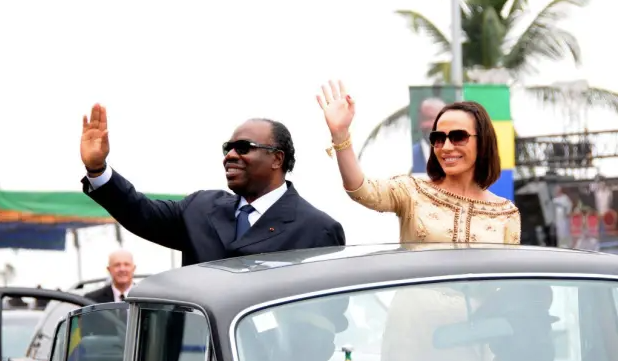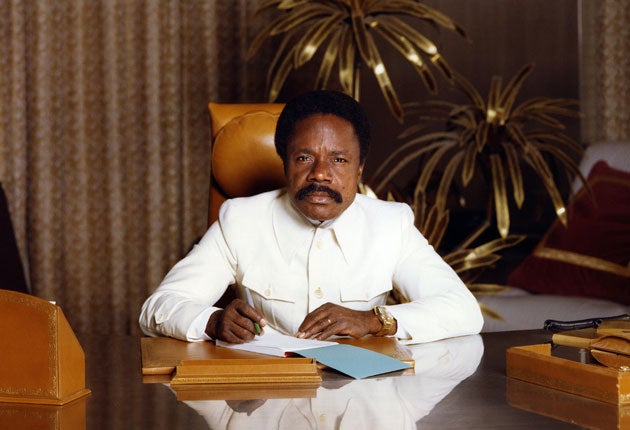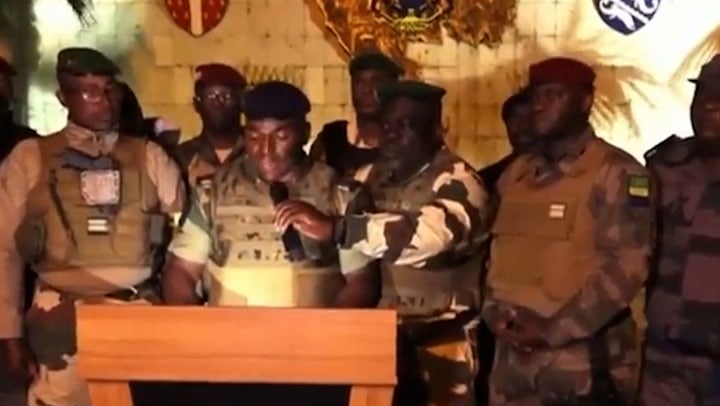Gabon coup would bring dramatic end to 55 years of Bongo family rule
Gabon is one of the largest producers of oil in Africa, yet much of its 2 million population live in poverty

Your support helps us to tell the story
From reproductive rights to climate change to Big Tech, The Independent is on the ground when the story is developing. Whether it's investigating the financials of Elon Musk's pro-Trump PAC or producing our latest documentary, 'The A Word', which shines a light on the American women fighting for reproductive rights, we know how important it is to parse out the facts from the messaging.
At such a critical moment in US history, we need reporters on the ground. Your donation allows us to keep sending journalists to speak to both sides of the story.
The Independent is trusted by Americans across the entire political spectrum. And unlike many other quality news outlets, we choose not to lock Americans out of our reporting and analysis with paywalls. We believe quality journalism should be available to everyone, paid for by those who can afford it.
Your support makes all the difference.When Gabon’s leader of 42 years Omar Bongo died in 2009, the country declared a month of mourning and his week-long state funeral was attended by 15 world leaders, including the president of France.
Presidential elections following his death were won by Bongo’s son Ali, who remains only the country’s third leader since it gained independence from France in 1960.
That rule is now threatened by the country’s generals, who took over a national TV station’s broadcast on Wednesday to declare that they were seizing power and dissolving “all the institutions of the republic”.
Follow our live blog on the Gabon coup here
If their coup d’etat proves to be successful, it would represent a dramatic end to the Bongo family’s grip on power over this oil-rich but poverty-stricken state.
Gabon has a population of just two million people and produces 181,000 barrels of crude oil a day, making it the eighth-largest oil producer in sub-Saharan Africa and an important member of the OPEC grouping.
Despite this, a large portion of the population lives in poverty, and nearly 40 per cent of people aged 15-24 are out of work, according to the World Bank’s 2020 figures.
When he came to power in 1967 aged just 31, Omar Bongo did so peacefully, in a post-colonial period where much of west Africa was going through conflict or successive coups.
His family enjoyed a strong relationship with former colonial power France and he maintained a firm grip on power by concentrating the country’s natural wealth in his control, investing some in big ticket infrastructure projects while buying off political opponents with lucrative roles in his government.
By the time he died of cardiac arrest at a Barcelona hospital aged 73, Bongo senior had become so successful at keeping hold of power there was no one left in the country with the authority to pronounce him dead.
French president Nicolas Sarkozy travelled to Libreville to attend the funeral, and a communique from his office said that “France, faithful to a long friendship, remains by Gabon’s side, that of its institutions, and by its people at this testing time”.

Yet, in the years after Ali Bongo’s election there was a reckoning, with a case into Omar Bongo’s alleged “ill-gotten gains” launched in France in 2010 after a lengthy investigation and campaign by watchdog Transparency International.
French prosecutors have previously said that prior to Omar’s death, the family owned 33 properties in France alone, including a villa estimated to be worth $27m. The Bongo family has strongly denied any embezzlement or wrongdoing.
In 2015, Ali Bongo pledged to give away his father’s troublesome inheritance, declaring that “in my eyes, we are all heirs of Omar Bongo”. He said two of his father’s former properties in Paris would be given to the state and that a building in Libreville would be turned into a new university.
France maintains close ties to Gabon, with some 400 French soldiers stationed in Libreville, down from around 1,000 in 2009. French prime minister Elisabeth Borne said on Wednesday that she was closely following the situation regarding the apparent coup.

If confirmed, the collapse of the government in Gabon would follow a spate of others in the region, with military takeovers in Mali, Guinea, Burkina Faso, Chad and most recently Niger all occurring since 2020.
The West is watching with alarm, particularly as the fall of a friendly government in Niger was immediately followed by a shift towards closer ties there to Russia’s Wagner mercenary group.
Josep Borrell, the EU’s foreign policy chief, said: “If this is confirmed, it is another military coup which increases instability in the whole region… This is a big issue for Europe.”
Join our commenting forum
Join thought-provoking conversations, follow other Independent readers and see their replies
Comments